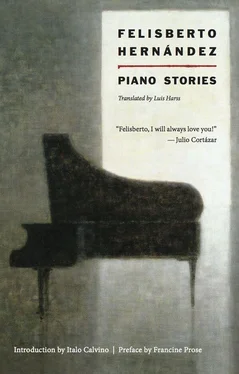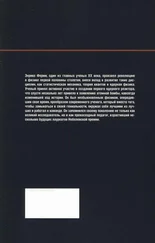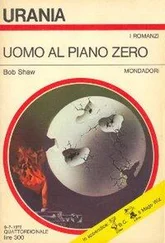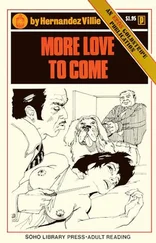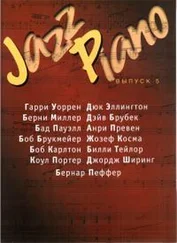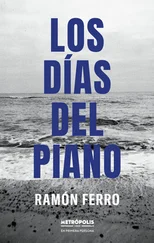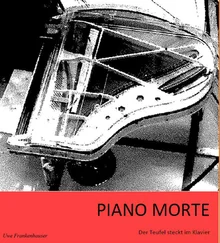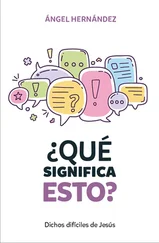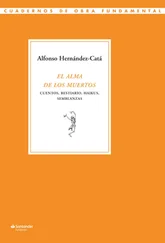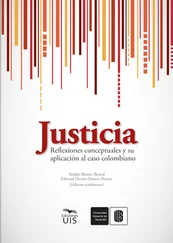Felisberto Hernandez - Piano Stories
Здесь есть возможность читать онлайн «Felisberto Hernandez - Piano Stories» весь текст электронной книги совершенно бесплатно (целиком полную версию без сокращений). В некоторых случаях можно слушать аудио, скачать через торрент в формате fb2 и присутствует краткое содержание. Год выпуска: 2014, Издательство: New Directions, Жанр: Современная проза, на английском языке. Описание произведения, (предисловие) а так же отзывы посетителей доступны на портале библиотеки ЛибКат.
- Название:Piano Stories
- Автор:
- Издательство:New Directions
- Жанр:
- Год:2014
- ISBN:нет данных
- Рейтинг книги:4 / 5. Голосов: 1
-
Избранное:Добавить в избранное
- Отзывы:
-
Ваша оценка:
- 80
- 1
- 2
- 3
- 4
- 5
Piano Stories: краткое содержание, описание и аннотация
Предлагаем к чтению аннотацию, описание, краткое содержание или предисловие (зависит от того, что написал сам автор книги «Piano Stories»). Если вы не нашли необходимую информацию о книге — напишите в комментариях, мы постараемся отыскать её.
Piano Stories
Piano Stories — читать онлайн бесплатно полную книгу (весь текст) целиком
Ниже представлен текст книги, разбитый по страницам. Система сохранения места последней прочитанной страницы, позволяет с удобством читать онлайн бесплатно книгу «Piano Stories», без необходимости каждый раз заново искать на чём Вы остановились. Поставьте закладку, и сможете в любой момент перейти на страницу, на которой закончили чтение.
Интервал:
Закладка:
My next big problem was my hands. I had always disliked the way some pianists dangled and swung their arms like pendulums when they came out and bowed. I tried to keep my arms in time with my steps — but that seemed more appropriate for a military parade. Then I thought of something that for a long time I was to find strikingly original: I’d come out with my left wrist clasped in my right hand, as if fastening my cufflink. (Years later an actor told me it was a cheap affectation known as “the ballet pose.” And, laughing, he imitated some dance steps, switching back and forth between clasping his left wrist in his right hand and his right wrist in his left hand.)
I barely had lunch, and spent the whole afternoon rehearsing. In the evening the electrician arrived and we practiced dimming and heightening the lights in the room and onstage. Then I tried on the tuxedo a friend had given me: it was too small and held me so tight it would have frustrated all my attempts at ease and naturalness, if it didn’t burst on me first. In the end I decided to wear street clothes: that would make everything seem more natural. . although, at the same time, looking too familiar would not be right either: I would have liked to invent something strange. But I was very tired and still sore under the arms from the chafing of the tuxedo. So I went and sat in the shadows of the orchestra to wait until it was time for the concert. But whenever I managed to keep still for a moment, my obsession with remembering the notes of some piece came back with such irresistible force that the only relief was to get up and look up the notes in the score.
A while before the concert, the two brothers who were my friends showed up, with the tuner. I asked them to wait for a minute while I shut myself in the dressing room, knowing that if I didn’t finish going over the passage I had in my mind I wouldn’t have a moment’s peace, but that afterward I could relax because once I got into conversation my attention would be distracted and I wouldn’t start remembering any more passages. The theater was still empty. One of my friends stood in the door to the set, staring at the black piano as if it were a casket. Then they both lowered their voices around me as if I were the dead person’s closest relative.
When the people started to trickle in, we peeked out at them from backstage through slits in the paper walls, crouching as if we were in a trench. From certain angles, the piano — like a huge cannon — blocked much of our view of the orchestra. I moved from peephole to peephole like a commander instructing his troops. I was glad for the small audience, which meant news of the coming disaster would not spread so fast — and also, I hoped, that critical expectations would be lower, in which case the “theatrics” I had been rehearsing for people who weren’t too knowledgeable about the music would work in my favor, perhaps making even those with some critical sense doubt their judgment. . It was all going to my head and I had even begun to put on airs with my friends and complain:
“You see! There’s just no interest in these events! It’s unbelievable! After so much sweat and sacrifice!”
But then more people arrived and my heart sank, although I kept rubbing my hands and saying, “That’s more like it!”
My friends seemed frightened, too, and at one point — after pretending not to notice for a while — I started haranguing them in a loud voice:
“So, what’s the matter? You’re not worried for me, are you? If you think it’s the first time I’ve played in public and it’s like being led to torture. . you’re in for a surprise! I’ve kept this to myself until now, but I was just waiting for my chance to show those music teachers over there that a ‘café pianist’” — I had come to town hired to play in the café — “can give concerts. Because what those chattering ladies don’t know is that in this country the opposite can happen: a concert pianist may well end up playing in a café.”
Although my voice did not carry beyond the stage, they tried to calm me down.
It was time to begin. I gave orders to ring the bell and sent my friends to their seats in the orchestra. Before leaving they promised to come back afterward and bring me the audience’s comments. I signaled the electrician to lower the lights and, reminding myself of the steps I had rehearsed, took my left cufflink in my right hand and made for the stage as if sailing into the glare of a fire. Although I was watching my steps from above, from my eyes, I put all my energy into picturing my walk from the audience’s point of view. My thoughts were like mad birds beating loud wings in my face — but I trod on firmly, measuring each step across the set.
I had reached my bench and still there was no applause. Finally it rippled out and I had to take a bow, interrupting the motion with which I had started to sit down. In spite of this minor setback, I was ready to carry on with my plan. I cast a more or less general and unfocused look over the audience, but made out the brittle shapes of whitish faces in the dark, pale as eggshells. And over the velvet-topped railing of the balcony with the short brass balusters painted white were sprinkled many pairs of hands. I put mine on the piano, pounded out several chords in quick succession and settled back. Next, according to my plan, I had to fix my eyes on the keyboard for a minute as if to concentrate my thoughts and await the arrival of the muse or the composer’s spirit (which must have been a long way off, because it was Bach). But more people were coming in and I had to break off communications. The unexpected reprieve was welcome: when I looked out at the audience again, I didn’t seem to be in such an impossible world. A few seconds later, however, I felt the fear I thought I had left behind catching up with me again. I tried to remember the keys involved in the first chords — but knew at once that if I proceeded along that road it would only lead to some forgotten chord. So I decided to attack the first note. It was a black key, and when I put my finger on it, before pressing down, I had time to realize the big moment had come: I was ready and further delay would be useless. The audience withdrew into a silence that was like the hole opening under you just before an accident you can’t avoid. The note rang out and it was like a stone falling down a well. Dazed by what I’d done, on blind impulse, I spread my hand out flat in a chord that sounded like a slap in the face. Wrestling hard I went on and got through the first bars. Suddenly I hunched forward, dampened the sound and started to peck out a pianissimo in the upper register. I liked the effect and decided to improvise a few more. In no time I was plunging my hands into the mass of sound and shaping it as if I were molding warm clay. At moments I would draw it out, lengthening the tempo, trying to give the mass a different shape, until it started going cold, and then I worked faster and felt it warm up again. It was like being in a magician’s den. I couldn’t guess what substances the magician had combined to start the fire, but I followed his every inspiration. At times I would settle into a slow tempo and the flame would become a steady glow. Then I would tilt my head back over one shoulder as if kneeling at a shrine. I felt the audience’s eyes on my right cheek, where they seemed to raise blisters. My last note was greeted with a burst of applause. I got up and bowed soberly, but I was euphoric. When I sat down again, the hands spread along the balcony railing were still clapping.
Everything went smoothly until I came to a “Music Box.” I had slid my bench a bit toward the upper register so I could play more comfortably and was sprinkling out the first notes like raindrops, certain that I was doing no worse than before, when suddenly there were murmurs in the theater and I even thought I heard some laughter. I started to shrink like a worm, feeling clumsy and unsure of myself. It seemed to me I had also seen a long shadow slide across the stage. When I managed to sneak a glance I found there really was a shadow, but now it was motionless. I went on playing and the murmurs continued. Now I could tell, without looking, that the shadow was moving. I wasn’t about to imagine a monster or even a joke at my expense. During a relatively easy passage I saw the shadow stretch out a long paw. I looked and it wasn’t there. But when I looked again I saw a black cat. I was near the end of the piece and the laughter and murmurs grew louder. I realized the cat was grooming his face — and what was I supposed to do? Pick him up and take him out? A ridiculous idea. I got through the piece and when I stood for the applause I felt the cat brush against my trouser leg. I was bowing and smiling. I sat down again and found myself stroking the cat. I had let more time than was prudent go by before starting on my next piece and I still didn’t know what to do with him. I would have looked insane chasing him around the stage in front of the audience. So I decided to let him sit next to me while I played. But now I couldn’t think of any more shapes to mold or ideas to run after — my mind was on the cat. Then I was seized by a terrifying thought: halfway through my next piece there was a spot where I had to claw out the notes with my left hand. The cat was on that side and might well spring up on the keyboard. But when I was coming to the spot I said to myself: “If the cat jumps they’ll blame him for my bad playing.” So I decided to take my chances and really let myself go. The cat did not jump and I wound up with a flourish, and that ended the first part of the concert. I looked all around the stage during the applause, but the cat was gone.
Читать дальшеИнтервал:
Закладка:
Похожие книги на «Piano Stories»
Представляем Вашему вниманию похожие книги на «Piano Stories» списком для выбора. Мы отобрали схожую по названию и смыслу литературу в надежде предоставить читателям больше вариантов отыскать новые, интересные, ещё непрочитанные произведения.
Обсуждение, отзывы о книге «Piano Stories» и просто собственные мнения читателей. Оставьте ваши комментарии, напишите, что Вы думаете о произведении, его смысле или главных героях. Укажите что конкретно понравилось, а что нет, и почему Вы так считаете.
